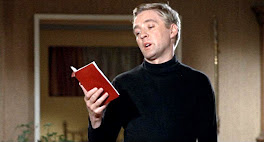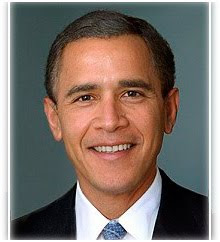By Peter Schwarz
26 February 2013
The result of the Italian parliamentary elections on Sunday and Monday was still unclear on Monday evening, even though the polls closed at 3:00 p.m. All indications were that the electorate had inflicted a resounding defeat on incumbent Prime Minister Mario Monti and repudiated his agenda of austerity measures demanded by the European Union (EU).However, no party articulated the deep social opposition in the working class and every party running advanced right-wing policies. Under these conditions, no clear victor emerged.
In the Chamber of Deputies, the center-left coalition led by Pier Lugi Bersani reportedly had a very slender lead, coming first in the vote with just under 30 percent. Bersani’s coalition is made up of the Democratic Party, which emerged from the disbanding of the Communist Party in 1991, and the Left, Ecology, Freedom party (SEL) led by Nichi Vendola.
According to Italian electoral law, the party with the biggest share of the vote automatically receives 55 percent of the seats in the Chamber of Deputies, the lower house. This evidently leaves the 61-year Bersani with a secure parliamentary majority.
In the second chamber of parliament, the Senate, Bersani’s alliance is in a neck-and-neck contest with the center-right alliance led by former Prime Minister Silvio Berlusconi, which consists of Berlusconi's People of Freedom (PdL), the Northern League, and two smaller right-wing parties. Seats in the Senate are awarded on the basis of the results in each of the 20 regions, rather than nationally.
If Bersani fails to obtain a majority in the Senate, a government of his coalition will likely be unable to get legislation through the upper chamber, creating a highly unstable political stalemate and in all probability setting the stage for a new election in the near future.
The Five-Star Movement, led by comedian Beppe Grillo, won far more votes than most polls had predicted. It is projected to have won 27 percent of the vote in the Chamber of Deputies, just behind the electoral lists of Bersani and Berlusconi. In Sicily, the movement emerged as the strongest party in the Senate elections, with 30 percent. Grillo ran against the EU and all the established parties, which he demonstratively attacked.
The alliance of incumbent Prime Minister Mario Monti and the Christian Democratic and Liberal Parties suffered a major defeat. Last night it was questionable whether the party would enter parliament, which has a minimum threshold for electoral lists of 10 percent. In the Senate this hurdle is even higher at 20 percent.
The Civil Revolution alliance led by the anti-Mafia prosecutor Antonio Ingraio, which includes the Communist Refoundation party, won just 2 percent of the vote and will not be represented in the new parliament.
The turnout was 75 percent, a fall of 6 percent compared to the last election in 2008.
The projections changed in the course of the evening, varying from one polling institute to another. This, in turn, led to extreme volatility in the financial markets.
When exit polls predicted a victory for Bersani at 3:00 p.m., the Milan stock index rose by 3 percent and the German DAX was up 2.3 percent. The euro rose against the dollar and the interest rate on Italian bonds dropped significantly. But when news emerged of a possible Berlusconi victory in the Senate, indexes turned negative.
During his election campaign Berlusconi slammed the EU, and especially the German government. He promised to reverse unpopular tax increases introduced by Monti.
Bersani, however, had committed himself to continue the austerity policies of Monti. He was therefore regarded by governments and business circles across Europe as a reliable advocate of further attacks on the working class.
Should the election end in a stalemate, it is expected that the financial markets will react violently, drawing not just Italy, but also the euro into renewed crisis. The Italian election result presages fierce social conflicts and political upheavals.
The poor performance by Monti demonstrates the extent of the popular hatred for the austerity measures dictated by the EU. In late 2011 and under pressure from the EU, the former EU commissioner Monti took over as head of a non-elected technocratic government and introduced drastic austerity measures. They have lowered the living standards of broad sections of the population, while youth unemployment has soared to more than 37 percent.
Monti was supported by the ruling classes throughout Europe and highly praised by the media. Italian voters did not share this enthusiasm, however, as the election result makes clear.
Bersani had long been regarded as the undisputed favorite to win the election. In the last polls published two weeks ago he was still well ahead of Berlusconi. As a result of his insistence on continuing Monti's austerity measures, this lead evaporated quickly.
In the election campaign Berlusconi posed as an opponent of the EU, although as prime minister he had supported the austerity program of the European Union. He promised voters that immediately after the election he would repeal the property tax introduced by Monti, which particularly hits small property owners.
It was Beppe Grillo, however, who succeeded in winning most of the protest vote by constantly denouncing the political “caste”. His movement, however, has no answer to the growing social crisis. Grillo has avoided taking any clear stand on class issues and his eclectic program tends strongly to the right.
The fact that more than half of all those who went to the polls voted for the list of Berlusconi or Grillo’s Five-Star Movement, both of which conducted campaigns against the EU, indicates the growth of opposition to the European Union in a country traditionally regarded as pro-EU.
The anger against Monti and the European Union could be exploited by right-wing figures because they faced no opposition from the nominal “left”. In common with the Social Democrats in all other European countries, the Democratic Party in Italy fully supports the austerity policies of the EU.
The Communist Refoundation Party, which also emerged from the Communist Party, has been completely discredited by its repeated support for right-wing governments.
















